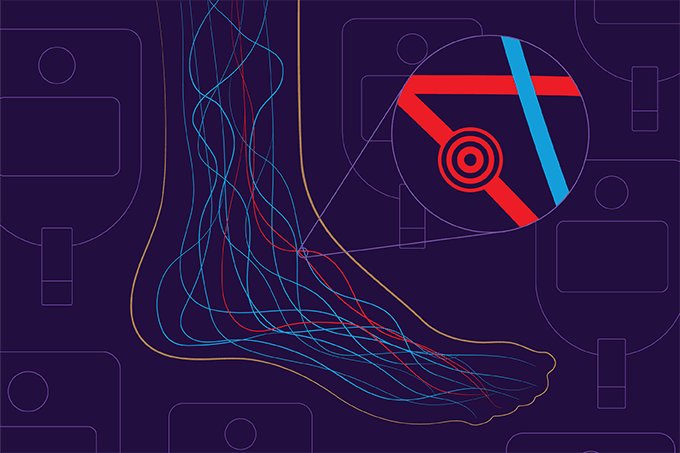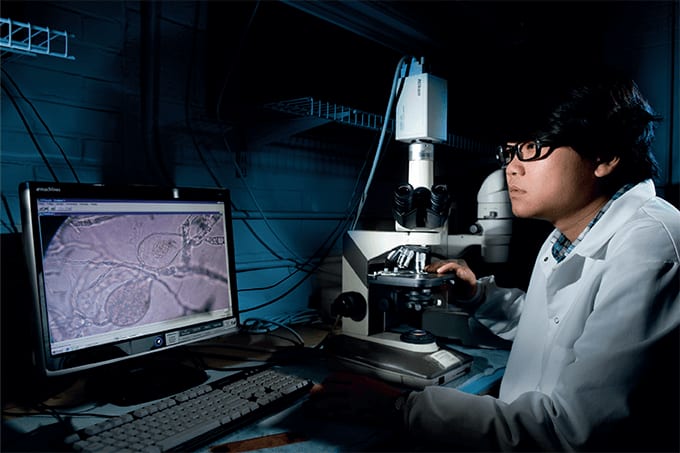Only 2 percent of the human genome encodes proteins; the remaining 98 percent is a mystery – and one we are just beginning to unravel. Evidence increasingly shows that noncoding DNA may be involved in gene regulation, including in cancer formation. But how can we plumb the depths of the noncoding genome? A new computational tool, cis-expression, may offer a solution (1).
Cis-X identifies driver mutations in two steps. First, it seeks out genes expressed on only one chromosome and at abnormally high levels; next, it looks for noncoding DNA alterations in the 3D genome. “Cis-X offers a powerful new approach for investigating the functional role of noncoding variants in cancer, which may expand the scope of precision medicine to treat cancer caused by such variants,” said senior author Jinghui Zhang (2).
The software is available free of charge at: tp.txp.to/ZhangLab/cis-X


References
- Y Liu et al., Nat Genet, 52, 811 (2020). PMID: 32632335.
- St. Jude Children’s Research Hospital (2020). Available at: https://bit.ly/317hZvh.




